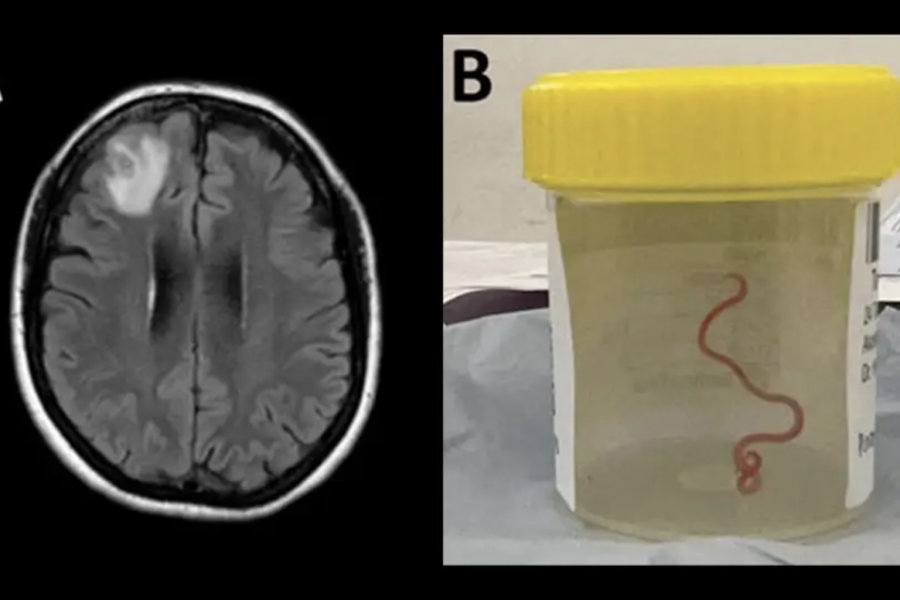A live, wriggling parasitic roundworm, 80 mm long, was extracted from the brain of a 64-year-old woman in Australia.
The worm was a third-stage larval form of Ophidascaris robertsi and was surgically removed from the patient’s right frontal lobe, reported Sanjaya Senanayake, MBBS, of the Canberra Hospital in Australia, and co-authors in Emerging Infectious Diseases
The helminth typically is found in carpet pythons. “This is the first-ever human case of Ophidascaris to be described in the world,” Senanayake said in statement.
Larvae from the roundworm usually are found in small mammals and marsupials that are eaten by the python, allowing the life cycle to complete itself in the snake, Senanayake explained.
O. robertsi nematodes are native to Australia, where adult worms inhabit a carpet python’s esophagus and stomach and shed eggs in the python’s feces.
Despite no direct snake contact, the patient often collected vegetation from a nearby lake area to use in cooking. The patient likely contracted the parasite from touching or consuming native warrigal greens contaminated with python fecal matter, the researchers noted.
“We hypothesized that she inadvertently consumed O. robertsi eggs either directly from the vegetation or indirectly by contamination of her hands or kitchen equipment,” they wrote.
The patient’s symptoms first started in January 2021. She developed abdominal pain and diarrhea, followed by dry cough and night sweats. No parasites were identified in blood, or respiratory or lung biopsy specimens.
